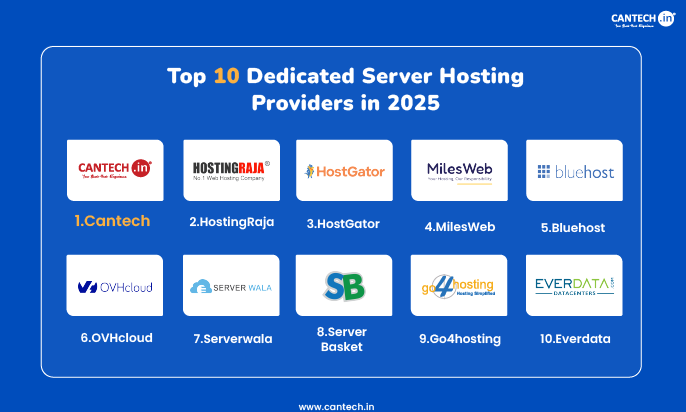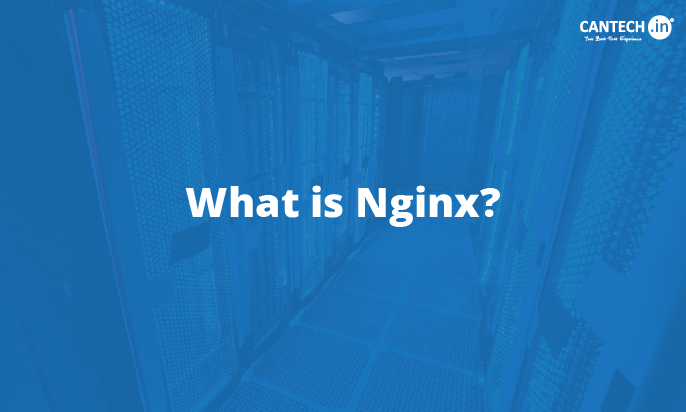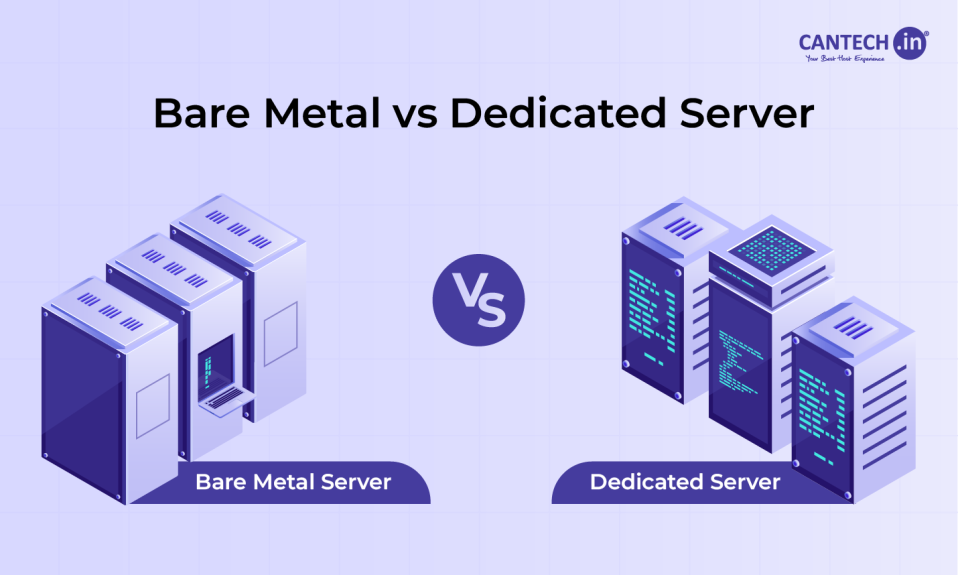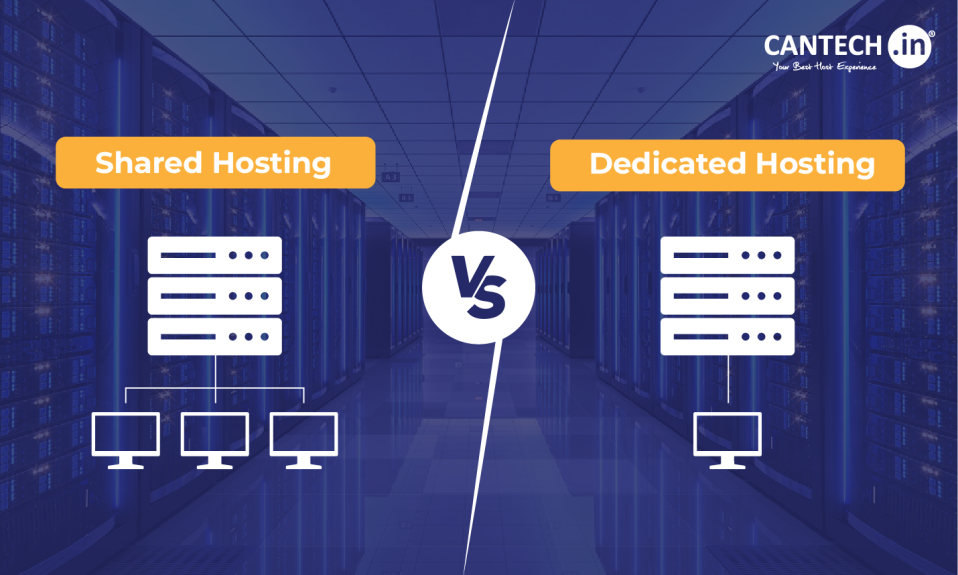What level of control and customization do you need in your server environment? Further, how equipped are you with the technical knowledge and resources for this management and maintenance? These both are essential questions to consider when deciding on managed vs unmanaged hosting. The decision between these web hosting types is crucial because the performance of your website is highly dependent on the optimization of your server resources. Thus, this blog gives a detailed comparison between a managed vs unmanaged dedicated server covering its meaning, needs, pros, and cons.
Before that, let us understand what dedicated servers are and if you need one for your website or application. Further, know the differences between unmanaged and managed dedicated servers at a glimpse. Read on to reach a conclusion as to which option is the most beneficial for you.
What are Dedicated Servers?
When you can get all the resources of one server environment solely for your website or application, it is a dedicated server. The server is the basis of hosting and making your website available on the internet when someone types its domain address. To ensure its right performance level i.e. high uptime, no crashing or speedy page load, the right hosting type and server resource usage play an essential role. It is exactly this reason why businesses choose dedicated servers.
The difference in the website’s performance would be clear when you compare it with shared or VPS hosting. Dedicated hosting prevents performance hampering in the shared environment due to other website activities. With the right type of dedicated servers i.e. managed server vs unmanaged, you can do wonders in your web hosting. Know more about What is Dedicated Hosting to understand why it’s the preferred choice for high-performance websites.
Why Do You Need Dedicated Hosting?
Reliability and consistency in the functioning of a website offer the best user experience. Therefore, a website that has to handle huge data storage, high traffic, or heavy speed needs a dedicated server. It is flexible in terms of customization as per your website needs. You have full control over custom security implementation and compliance as well. Data protection, monitoring, and other server configurations too are all in your hands. Also, you can set hardware, software installations, OS, etc. as per your requirements. All in all, your website users and search engines would appreciate the better-performing websites and this further benefits your business.
Moreover, you can use a dedicated server to host a website anticipating growth or high traffic. It would need dedicated processing power, disk space, and bandwidth to meet its high traffic volumes. Thus, in this case, the dedicated servers can give smooth websites with the required server resources. Further, it ensures reliable backup and recovery for easy restoration and it also gives enough space with a custom storage type. If your website such as ecommerce or financial institute needs custom security settings or compliance, this type of server offers the required control for the same. This is exactly why you need dedicated server solutions to maintain top-tier performance, security, and reliability for your business.
Now, that we know what dedicated hosting is and why we need it for websites requiring ample resources, control, and required monitoring, let us understand unmanaged vs managed hosting.
Types of Dedicated Servers
Different dedicated server types are explained below to help you make an informed decision for your business needs:
-
Gaming
This server type handles the heavy workload of online games with a lag-free gaming experience. Also, it supports the high resource demand for multiplayer games.
-
Database
This dedicated server type handles heavy data storage and processing. Thus, they are ideal for managing big data sets and multiple processes simultaneously. All in all, it is ideal and critical for businesses that need efficient data management with optimal performance and speed.
-
Web & Application
Web servers offer hosting for resource-intensive web pages; primarily, it ensures high performance and reliable connectivity. Also, it offers efficient data management and fast load times for your web pages. This type is ideal for large websites or applications or ecommerce sites with heavy traffic.
Moreover, the web application server supports resource-intensive web apps to facilitate high uptime for the best user experience. It is preferred by businesses hosting complex web applications.
-
Email
Dedicated email servers are used to handle large email volumes with advanced security. Also, it offers improved performance, smooth communication, and better deliverability rates for the same.
Apart from the above types of dedicated servers, there are certain categories of dedicated servers to choose from, they are discussed below:
-
Managed Dedicated Servers
The hosting provider offers complete management and support for this type of server. They monitor and maintain it to ensure optimal performance and security. Therefore, it is ideal for enterprises that prefer not to handle hardware, configuration, security, or other technical settings. However, the disadvantages of managed dedicated servers include higher costs and less control compared to dedicated servers managed by the user.
Read our complete guide on What is Managed Web Hosting?
-
Unmanaged Dedicated Servers
These server types offer full control and flexibility for users managing configuration, maintenance, and security. They are cost-effective but they require technical expertise. The disadvantages of unmanaged dedicated servers include the need for dedicated time and skills. However, they allow complete customization. Companies looking to buy unmanaged dedicated server options must consider their pros and cons related to performance and support.
-
Cheap Dedicated Servers
They offer better reliability and performance than shared hosting which divides its resources among multiple users. Cheap Dedicated Server India provider like Cantech addresses performance issues of shared storage and provide a reliable solution at a lower cost.
-
Standard Dedicated Servers
Standard dedicated servers meet customized business needs and often provide managed dedicated solutions and support services. They deliver better performance than low-cost options and are ideal for companies needing optimal performance.
-
Enterprise Dedicated Servers
These servers offer the highest reliability, availability, and performance for websites and applications. As the name suggests, it offers enterprise-level quality and expertise for the same. They are highly customizable for RAM, CPU, storage, and networking options. Thus, businesses requiring robust infrastructure must choose this type of dedicated server.
-
High-Performance Dedicated Servers
These dedicated servers are designed for data-intensive applications like AI and big data analytics. Also, they are equipped with exclusive GPU hardware to enable complex computations and data processing.
-
High Bandwidth Dedicated Servers
Heavy traffic sites, live streaming, gaming servers, and mass data transfers prefer this type of dedicated servers to efficiently handle large volumes of data.
-
Unmetered Dedicated Servers
With this type, you can utilize unlimited monthly bandwidth if you anticipate heavy traffic volumes. They provide a hosting solution without extra bandwidth charges.
What are Unmanaged Dedicated Servers?
With the unmanaged dedicated server, the server management, control, and complete responsibility are on the user’s side i.e. the client whose website is hosted on the dedicated server.
So, what to expect from an unmanaged dedicated server? The hosting service provider is responsible for setting up the hardware (CPU, RAM, disk space, and network connectivity) as per the website requirements. Also, they install the operating system of the client’s preference. Further, they also offer system-level monitoring and data center infrastructure.
That’s it, other management tasks are on the client.
The client gets the root access and they are responsible for the configurations, software installations, updates, and security settings. They are also in charge of the backups and maintenance tasks. Unmanaged dedicated server hosting does not include any support for coding development or modification, customization of CMS, or third-party software installations. Also, custom .htaccess and WordPress-related support for themes and plugins are not included. Thus, the client side needs a great amount of technical expertise for server management.
When to choose unmanaged dedicated servers?
All the management and tasks related to the server resources and configurations come with your unmanaged dedicated server choice. Thus, when you need full flexibility and control over them, it is the right hosting type for you. However, it also requires a high-level of technical knowledge which means you need experts or even a team to manage the server tasks.
Pros of Unmanaged Servers
Below are the advantages of unmanaged dedicated servers:
Complete control of what you want
The server environment is in your control completely. The advanced users who need to have root access can ideally benefit from this type of dedicated server. It will have no limitations or involvement of the hosting provider and thus you can make the customized configurations as per your website requirements.
Flexibility of your choice
With control comes flexibility. In unmanaged servers, it is your role to choose your preferred software installations, applications, OS, control panel, security protocols, etc. Your website or application needs would decide the perfect server environment for your business and it allows you to choose them.
Cost-effective solution
You do not avail the server management services from your hosting provider and so it is one of the pros of unmanaged servers. You handle the management tasks so you need not incur additional costs of managed hosting solutions. Thus, if you buy an unmanaged dedicated server plan, it is more budget-friendly.
Disadvantages of Unmanaged Dedicated Servers
Some of the cons for unmanaged dedicated servers are listed below:
Technical expertise necessary
With every management task of your dedicated server under your realm, you certainly need advanced technical experts. After all, the perfect settings and configurations, software installation, security patches, etc of the dedicated environment decide the performance and security of your website or application. If these tasks are not done right, the unmanaged dedicated server is challenging, risky, and under-performing.
Time-consuming
An unmanaged server requires a great deal of time and effort. You have to do a lot of tasks that require continuous attention to ensure optimal performance. You need to carry out updates, security measures, backups, troubleshooting, and more. These and other server management activities may require dedicated personnel and this may further incur operational costs for your business.
Support is limited
Unmanaged dedicated servers depend on you and thus one of the main cons for unmanaged servers.is that its plan offers minimal support. You are mostly on your own in the case of unmanaged dedicated servers.
What are Managed Dedicated Servers?
When the client user rents the complete server resources with the entire server administration and management on the hosting provider, it is called the managed dedicated server. They take care of every server management task from the setup of the server, to its maintenance and end-to-end support to ensure the best performance.
So, what to expect from a managed dedicated server? It includes all the tasks such as software setup, hardware, network connectivity, ideal configurations, continuous monitoring, advanced security, and smooth operations. Also, it ensures ongoing OS maintenance with continuous required updates of software and security. Moreover, it takes care of the essential services on the server from set up to its support such as control panel account software platforms and development platforms that are with OS or website software. Further, it has 24/7 customer support to provide round-the-clock immediate resolution of any issues.
When to Choose Managed Dedicated Servers?
Thus, you want expert technical expertise and if your business lacks that for server management, you must opt for managed servers. This is because you need a properly maintained server with any issues solved promptly.
Also, clients who want to focus their time and resources on the core business operations and outsource the server management must go with a managed dedicated server choice. Moreover, you must choose this type of server, if you want to ensure advanced security and continuous availability of the website. A reliable and efficient website is highly crucial if you have a mission-critical application. With managed hosting, you get guaranteed server management and maintenance services for the same.
Advantages of Managed Dedicated Servers
The comparison of unmanaged vs managed hosting can be clear with the below-listed benefits of the managed dedicated servers:
Free from Server Management
You can focus on your business operations and other areas with peace of mind while the hosting provider manages your dedicated server to provide you with the optimal website.
Get Expert Technical Support
The expert server administrators of the hosting providers can assist you with any technical issues for a smooth and efficient server running. Also, they provide ongoing maintenance and support.
Advanced Security Measures
Pros of managed servers include the customized required security features such as firewalls, updates, intrusion detection, and more. The providers manage and monitor the server 24/7 for the same.
Ensures Best Performance
Continuous monitoring and performance tuning of the managed dedicated servers optimizes the same to ensure optimal performance. Thus, it gives the best user experience with continuous accessibility. Also, it scales based on your website requirements like customizing the settings and configurations for CPU, storage, and bandwidth. Further, it also optimizes tasks such as caching, content delivery networks (CDNs), and autoscaling.
Disadvantages of Managed Dedicated Servers
With advanced management services, support, and ongoing monitoring that the hosting providers give, the high cost is among the top cons for managed servers. Moreover, it also gives the user less control and customization compared to unmanaged servers. Thus, it limits you from certain maintenance and troubleshooting tasks at the administrator level.
Read more about Advantage and Disadvantage of Dedicated Server Hosting
Key Differences Between Unmanaged vs Managed Dedicated Servers

Managed Vs Unmanaged Dedicated Server: Which One You Should Choose?
The above sections compare managed vs unmanaged dedicated servers through meaning, pros, cons, and side-by-side comparison. This information makes it clear that the choice between the two mainly depends on your business needs, the extent of control that you want, the cost, and mainly the technical expertise.
If your business has limited technical knowledge and you need full support from the hosting provider such as setup, maintenance, security, and backups, you must opt for managed dedicated hosting. However, it would cost you a higher price and give you less control over server configurations. In contrast, if you have strong in-house IT expertise, get unmanaged servers at less cost. However, it needs extensive effort and time.
The right hosting provider for your ideal type of hosting solution is a prerequisite. You must choose one wisely, especially for the managed dedicated servers. You must search for a provider with a solid reputation and the features your website needs.
Why Choose Cantech’s Managed or Unmanaged Dedicated Server?
The right hosting provider for your ideal type of hosting solution is a prerequisite. You must choose one wisely, especially for the managed dedicated servers. You need to search for a provider with a solid reputation and the features your website needs.
Cantech is an ideal hosting service provider. Managed or unmanaged, we ensure our dedicated server gives your site or app the desired performance. We can meet your customized and specific needs as per your website or application requirements with our reliable services.
With our remote management under the managed services, we can ensure 24/7 optimal server performance, regular backup and monitoring, patch management, resource monitoring, and more. Our custom hosting plans offer all the required features that can ensure great performance and excellent support.
Conclusion
Managed vs unmanaged dedicated server comparison in this blog will now help you determine the best type of hosting for your business. Also, choose a hosting service provider that can meet your customized and specific needs as per your website or application requirements. For reliable service, why not consider Cantech? With our remote management, we can ensure optimal server performance, regular backup and monitoring, patch management, resource monitoring, and more. Our custom hosting plans offer all the required features that can ensure great performance and excellent support. Contact us today!
FAQ
What are dedicated servers?
The type of server that allocates all its resources for your website or application to meet the optimal performance needs as per your customized requirements is a dedicated server. It is the most suitable for websites with high traffic, storage needs, security measures, and more.
What is a Managed Dedicated Server?
When the hosting service provider handles end-to-end server tasks and manages hardware, software installations, security, OS, etc, then it is a managed dedicated server. It sets up, configures, manages, monitors, and controls all the activities for optimal website performance.
What is an Unmanaged Dedicated Server?
When you as a client are responsible for all major server management and maintenance tasks with full control and customization in your hands then it is called an unmanaged dedicated server.
What is the Difference Between Managed and Unmanaged Dedicated Servers?
When the control and customization of the dedicated server resources are managed and monitored by the hosting provider then it is called a managed dedicated server. If you take responsibility for its configuration and settings, then it is called the unmanaged dedicated server.
Thus, a managed server is more expensive. Also, the client or business requires expert technical knowledge to handle the unmanaged dedicated hosting type.
What kind of support can I expect with managed dedicated servers?
It offers complete 24/7 support and monitoring services for all server administration and management. It includes hardware monitoring, software updates and installations, operating system, security patches, performance monitoring, and other technical queries or issues.
Are managed dedicated servers more expensive than unmanaged servers?
Yes, the hosting service providers take complete responsibility for all server management tasks in managed dedicated servers so it is costlier.
Which option is better for businesses focusing on core operations?
If you require the freedom to give your attention to your core business operations, you must choose managed dedicated servers so that you do need not to worry about the server administration.
Who should choose a fully managed server?
Businesses that lack technical expertise in server management prefer a fully managed dedicated server. Also, if you want to focus on primary business operations, you can outsource server management with this type of server.
Managed servers guarantee optimal performance through setup, maintenance, network connectivity, and continuous monitoring. It also handles advanced security and provides 24/7 customer support. It can guarantee high uptime and security for mission-critical applications. Thus, choose a dedicated servers managed if you require expert technical support, advanced security, and continuous website availability.
Do unmanaged dedicated servers offer technical support?
You can buy unmanaged dedicated server plans if you need minimal technical support from the provider’s end. The hosting provider sets up the hardware (CPU, RAM, disk space, network connectivity, etc) and installs the operating system as per the client’s preference. However, the client is responsible for everything after that including configurations, software installations, updates, and security settings.
Moreover, there is no support for coding development, customization of CMS, or third-party software installations.
The disadvantages of unmanaged dedicated servers include the need for significant technical expertise to manage and maintain the server independently (it can prove to be a benefit for you if you need full control and management in your hands).
Can I customize my server configuration with managed dedicated hosting?
When we compare managed vs unmanaged servers, you can customize your server configuration with managed dedicated hosting up to a certain level, unlike unmanaged servers that give you full control. The hosting provider handles all server management tasks, including software setup, hardware configurations, network connectivity, continuous monitoring, and security updates. So, you need to rely on their infrastructure and policies for configuration and settings. This is one of the disadvantages of managed dedicated servers.
However, they ensure your server is optimized for performance and can be tailored to meet your specific requirements. They also offer support for control panel software, development platforms, and other essential services.
What level of technical expertise is required for unmanaged dedicated servers?
An unmanaged dedicated server requires advanced technical expertise. That’s the key difference between managed and unmanaged dedicated servers.
Users need to handle configurations, software installations, patches, and overall maintenance. It requires in-depth knowledge to ensure the server’s performance and security. It can become challenging, risky, and underperforming without expert management.








